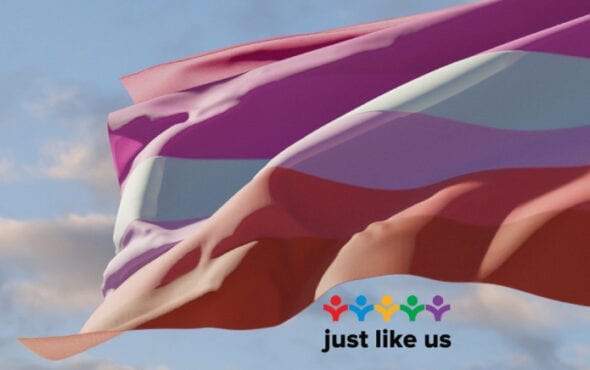
More than two-thirds of lesbians said they put off coming out because of negative stereotypes about them, a new study has found.
Being perceived as ‘cringey or awkward’ was found to be the most common reason for not opening up about their identity at 30%, followed by a belief that their sexuality was seen as ‘wrong’ by others at 25%.
Fears about lesbians being ‘taboo’ or ‘embarrassing’ also contributed to this at 23% each, with other harmful stereotypes about being ‘masculine or butch’, ‘over-sexualised’ or ‘unattractive’ following on at 22%, 19% and 16%, respectively.
“I came out as bisexual at 15, lesbian at 17, and non-binary at 19,” said Mara, a 20-year-old ambassador for LGBTQ+ young people’s charity Just Like Us, speaking as part of the research. “My high school experience was quite challenging at times, as the word lesbian was often used as an insult, so it was difficult to come to terms with being a lesbian when most of what I had heard about them was in a negative light. People would also often ask questions about my sexuality and try to assume things before I even properly knew myself. Boys would often try to ask rude questions, and girls would be disgusted at the idea of a lesbian.”
It was also determined that 12% delayed coming out over ‘man-hating’ tropes some link to being lesbian, with 9% being put off by concerns of people being ‘old-fashioned’ and 4% by some perceiving the community to be ‘anti-trans’.
Those aged 18 to 24 were impacted by the over-sexualisation of lesbians more than any other age group, with 36% saying it was a barrier to them sharing their sexuality with others.
The ‘masculine or butch’ and ‘unattractive’ concerns impacted 31% and 22% of this specific group, respectively.
More generally, the ground-breaking study found that young lesbians are more likely to face tension at home (61%), be lonely (87%) or say their mental health worsened during the COVID-19 pandemic (78%) than any other LGBTQ+ identity.
Niamh, a 23-year-old who is also a Just Like Us volunteer, added: “I came out at 15 at school, 19 at home. Both times felt embarrassing.
“At school it was already a rumour, and I knew people would gossip about it, and they did. I was always scared it would get back to my sister who was at the same school. At home, I didn’t really want to tell my parents, but I felt like I had to.”
The research, which comes from Just Like Us, surveyed 643 lesbians in the UK ahead of Lesbian Visibility Week 2022.
“It is deeply saddening to see that the next generation of young lesbians are still suffering from these harmful and damaging stereotypes about lesbians,” said the charity’s CEO, Dominic Arnall.
“All young people deserve to know that being LGBTQ+ is something to be celebrated and through our work with schools, we want to smash these stereotypes and show that being a lesbian is a wonderful, positive thing.”
Amy Ashenden, the Director of Comms at Just Like Us, explained that the findings give a “heartbreaking” insight into how a “majority of lesbians are delaying living their lives to the fullest and feel unable to come out because of tired lesbophobic stereotypes that continue to be perpetuated, and this is something I regularly see lesbians struggling with.”



